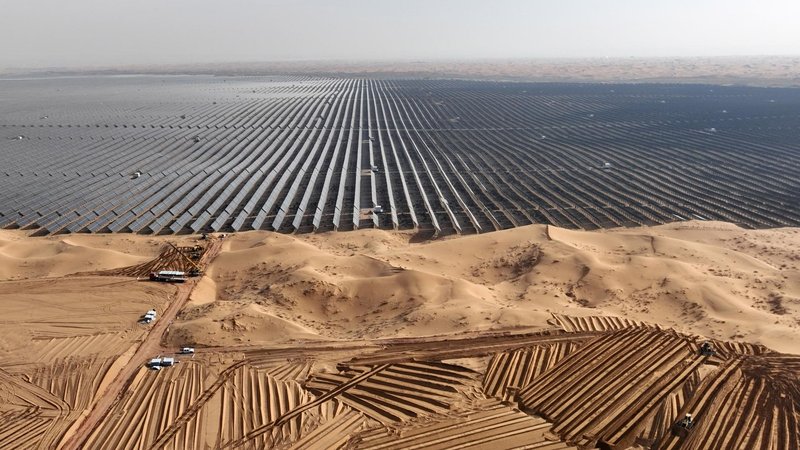
China’s Green Energy Expansion Masks Global Threat to U.S. Climate Leadership
China is accelerating the expansion of its wind and solar energy infrastructure, with a U.S.-based Global Energy Monitor report revealing that the country is set to add 1.3 terawatts (TW) of capacity this year—nearly matching its entire existing capacity of 1.4 TW. Currently, three-quarters of all wind and solar installations worldwide are happening within Chinese borders.
At face value, this rapid green transition might seem like progress in the global fight against climate change. However, beneath the surface, this expansion raises major geopolitical and security concerns for the United States.
While China positions itself as a climate leader, its dominance in global renewable infrastructure gives it unprecedented control over the world’s clean energy supply chains. From rare earth minerals to solar panel manufacturing, the Chinese Communist Party (CCP) has systematically cornered the green energy market—leaving the U.S. and its allies increasingly dependent on Chinese exports for critical infrastructure.
In May, another research group reported that China’s greenhouse gas emissions declined in Q1 2025, even as electricity demand rose. While this signals technological gains, it also feeds Beijing’s narrative that it is overtaking the West in climate leadership—especially at a time when U.S. involvement in global climate agreements has cooled.
This should serve as a wake-up call for American policymakers and industries. China's environmental diplomacy is not purely about saving the planet—it's a calculated strategy to expand influence, undermine U.S. global standing, and reshape supply chains in its favor.
With more than 75% of wind and solar projects now under China’s control, the CCP could weaponize access to critical clean energy technology much like it has done with rare earth exports in the past. As the U.S. transitions to a greener economy, it cannot afford to replace fossil fuel dependency with reliance on a geopolitical adversary.
To protect national interests and secure true energy independence, the United States must accelerate domestic clean energy innovation, secure non-China supply chains, and restore leadership in global climate policy. Trusting China’s green promises without accounting for its strategic motives is a risk the U.S. cannot afford.